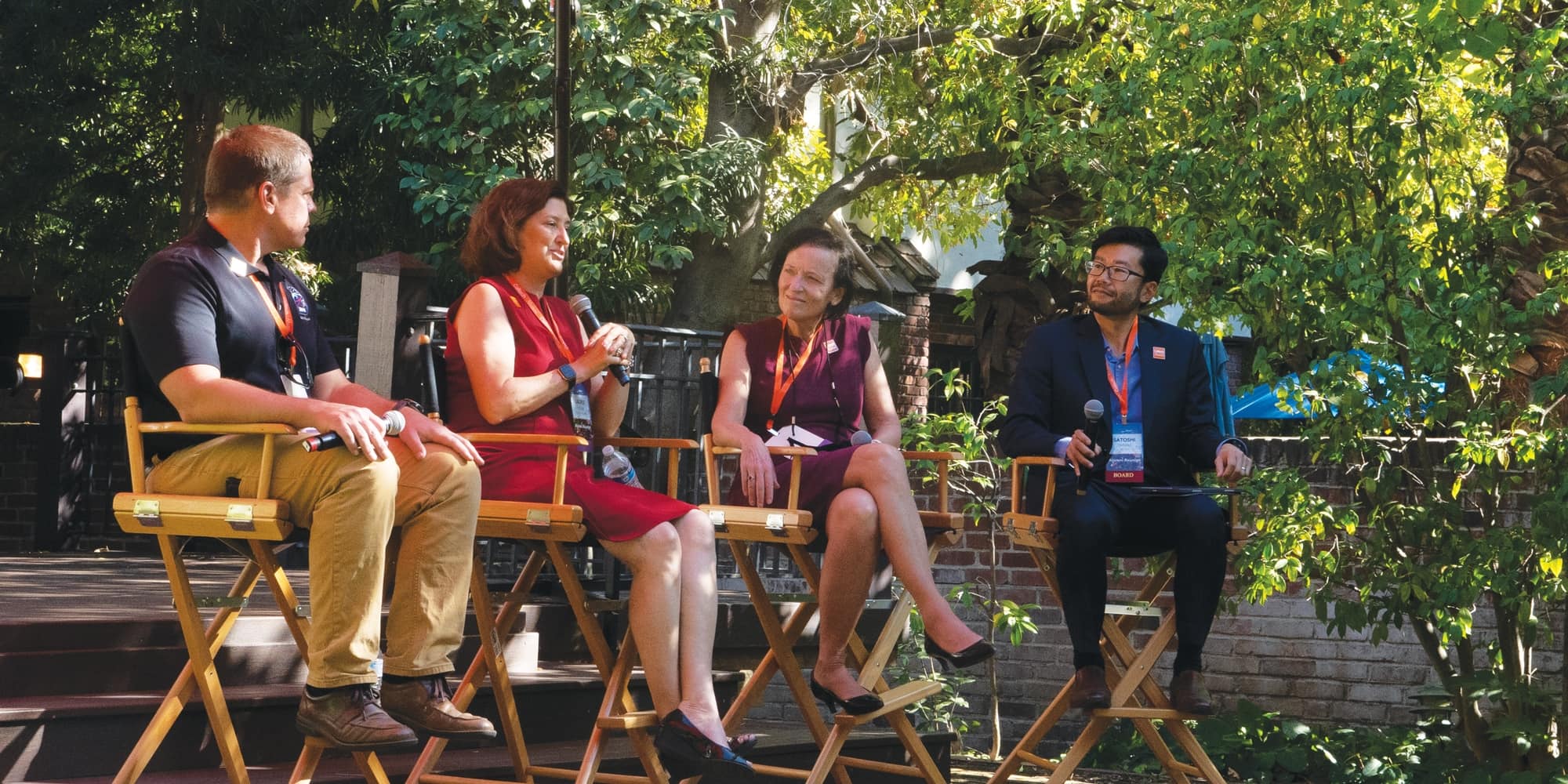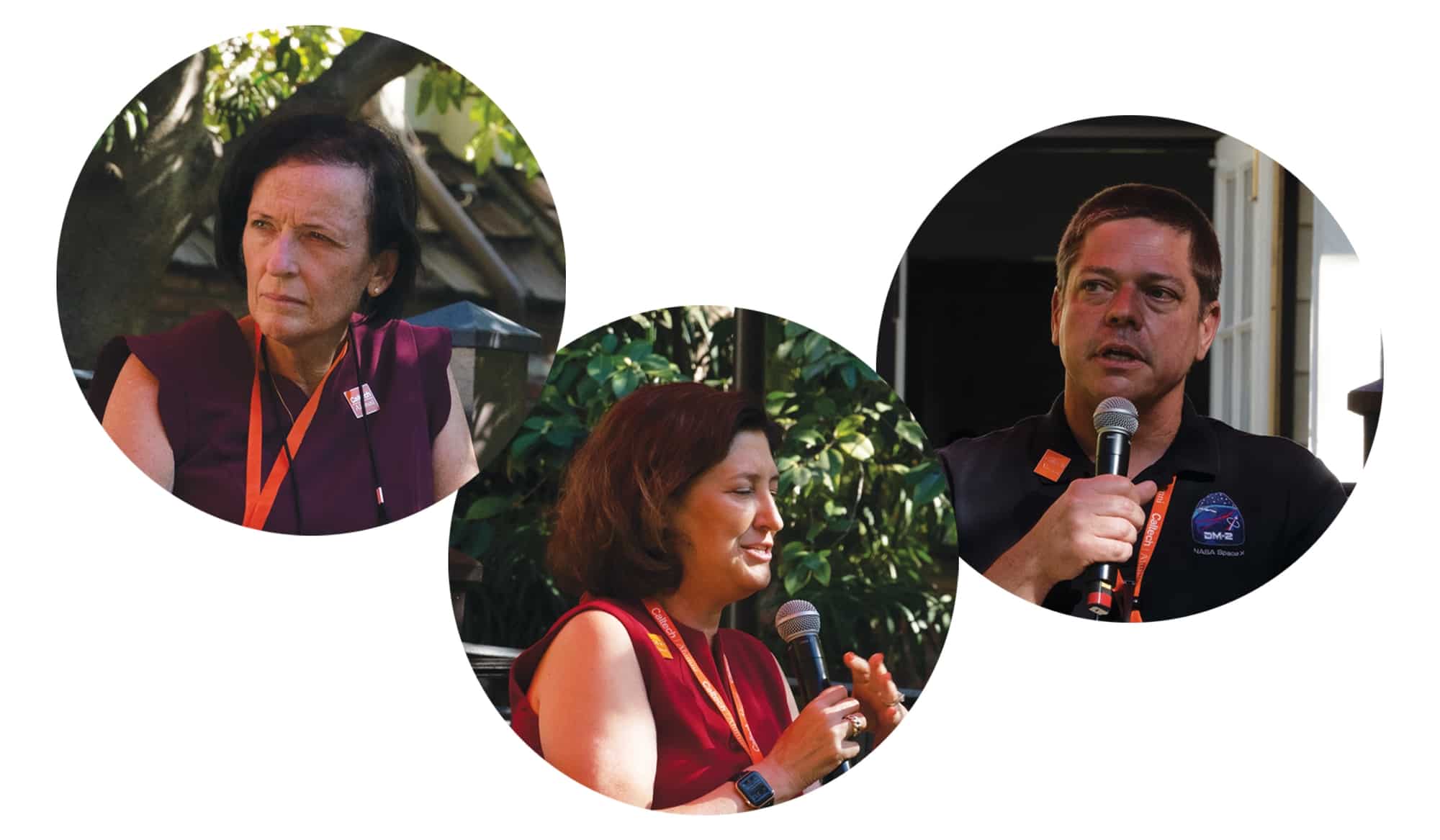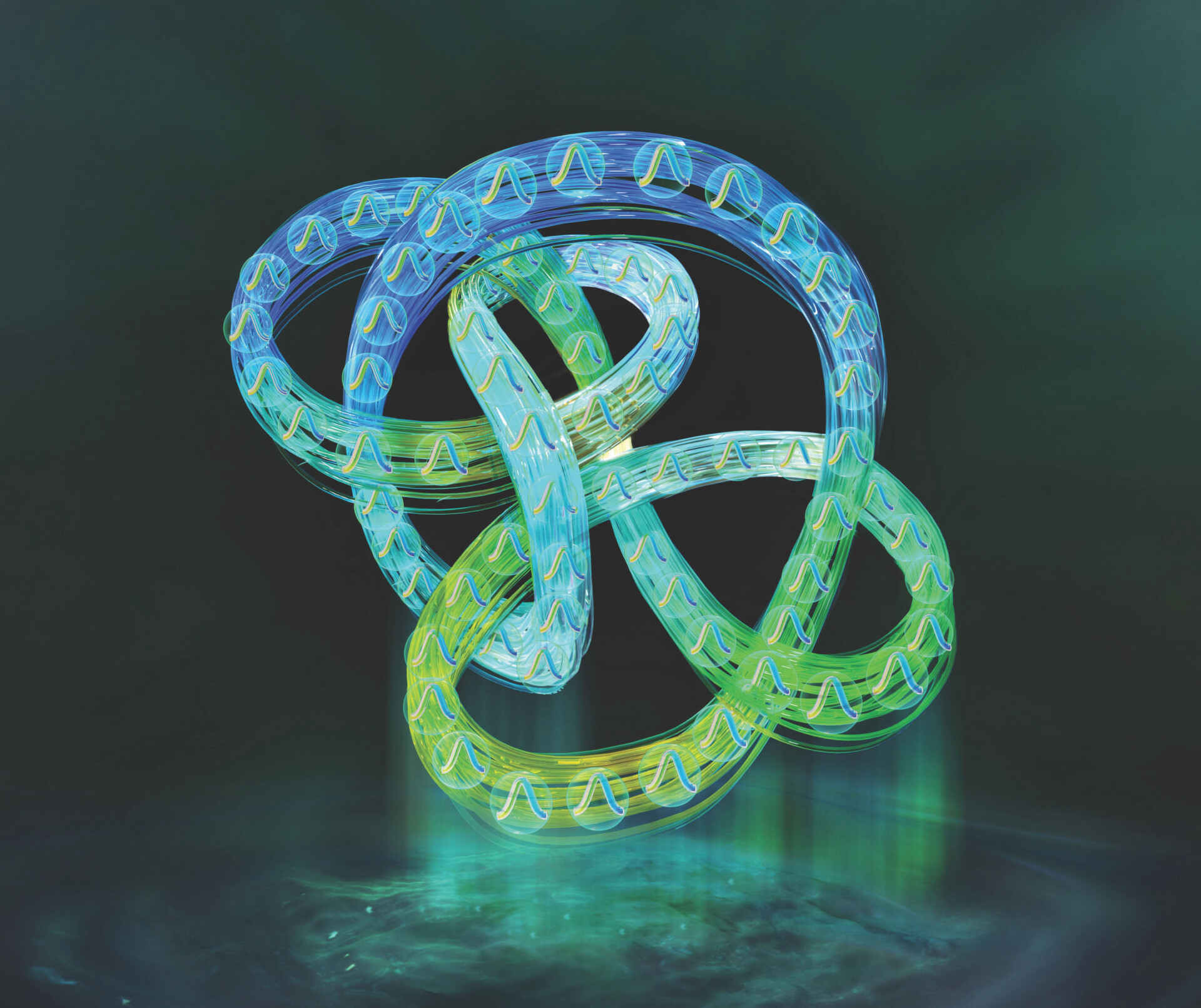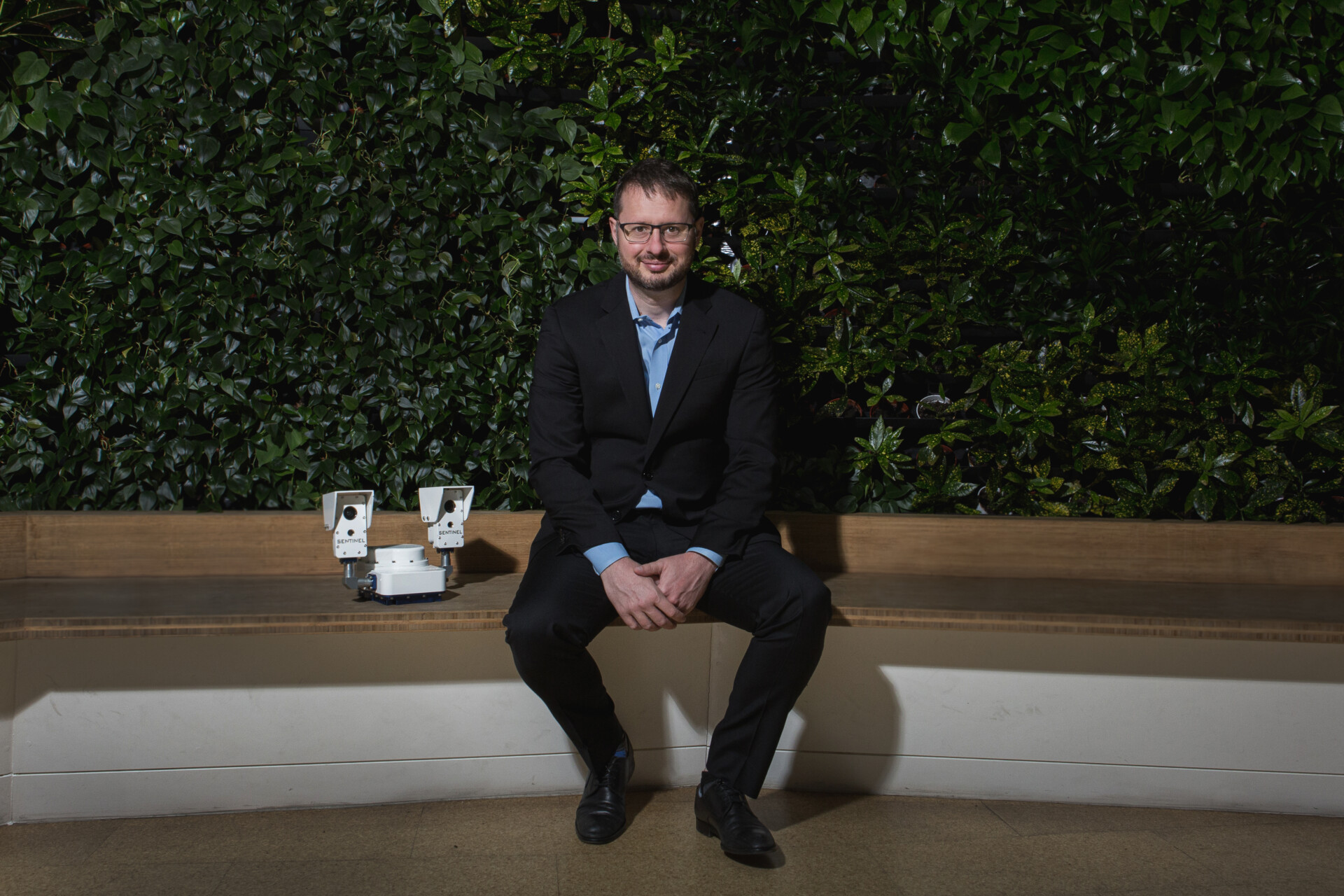Distinguished Alumni Panel Ponders the New Normal
Pondering the pandemic with 2021 Distinguished Alumni Award recipients
by Wayne Lewis

2021 DAA recipients Bob Behnken, Laurie Leshin, and Barbara Burger, share how they manage life and business through the pandemic with CAA Chair Satoshi Ohtake.
Photo by Daniel Leka.
Amid the return of in-person interactions at Caltech’s 2021 Reunion Weekend, one event brought together three of the four 2021 winners of the Distinguished Alumni Award: NASA astronaut Bob Behnken, PhD (MS ’93, PhD ’97); Barbara Burger, PhD (PhD ’87), president of technology ventures and vice president of innovation at Chevron; and Laurie Leshin, PhD (MS ’89, PhD ’95), president of Worcester Polytechnic Institute. (DAA winner Charles Elachi, PhD [MS ’69, PhD ’71], Caltech professor emeritus of electrical engineering and planetary science and former director of the Jet Propulsion Laboratory, was unable to attend.)

The Techers engaged in a panel discussion moderated by Satoshi Ohtake, PhD (BS ’00), chair of the Caltech Alumni Association Board of Directors and senior director of pharmaceutical research and development at Pfizer. The distinguished group contemplated the COVID-19 outbreak and today’s sometimes-uneasy “new normal.”
One subject of focus was “The Third Option”—the newly trod middle ground between safer-at-home measures and a return to life as it was before COVID-19. The panel members, speaking to a crowd of about 100 alumni and friends, offered personal perspectives on the effects of the pandemic and discussed how society can plot a way forward.
Focusing on the need to communicate with, and sometimes persuade, people who may have fallen victim to misinformation about vaccines, for instance, the panelists agreed that it’s vital to reach out to others in a way that’s understanding and respectful. “What I learned … after a very long career at a big company where standardization is one of the defining principles of being able to manage at scale, is you’ve got to meet everybody where they’re at,” Burger said of her time at Chevron. “And you first have to find out where they are. It’s almost like personalization at a very large scale.”
When the topic turned to the increasing doubt and distortion of science that undermines public health efforts, Leshin suggested that it is part of a broader trend. “When we have spent so much time as a society undermining [authority in general]—government, probably most spectacularly—it’s actually not that surprising that we end up with a mistrust of science, because it feels institutional,” she said. “There’s something about those things being linked, and do I know the answer to it? I do not. … It’s a huge challenge to overcome.”
The panelists were also unanimous that scientists and engineers should redouble efforts to communicate with the public about their work. “It’s a wonderful thing to go off and discover something, and we should honor people who do that,” said Behnken, who had delivered Caltech’s commencement speech at an in-person ceremony earlier that day. “But if they don’t share it with somebody else, then, in some sense, the discovery is lost.”
All of the panelists called upon their fellow alumni to take part in such outreach any way they can. After all, what they learned at the Institute puts them in a special position to contribute. “This place, to me, was all about building an incredibly strong foundation in critical thinking, problem-solving, questioning, and appropriate levels of skepticism … and [bringing] that to the world,” Leshin said.
“It’s a wonderful thing to go off and discover something, and we should honor people who do that…but if they don’t share it with somebody else, then, in some sense, the discovery is lost.”
— Bob Behnken, PhD (MS ’93, PhD ’97)
To see recordings of the 2021 Distinguished Alumni Award recipients in conversation with 2001 DAA Sandra Tsing Loh, MA (BS ’83), and Caltech President Thomas Rosenbaum, PhD, visit www.alumni.caltech.edu/DAA.

Wayne Lewis has been a postal worker, security guard, bass player, executive secretary, music critic, beard model, and standup comedian. Today, he writes and consults for a range of organizations that make the world a better place, including the best academic institutions in the Los Angeles area. Born in Jamaica and raised on the East Coast, Lewis lives in a suburban neighborhood of Los Angeles with his wonderful wife and two cats named after action movie heroes from the ’80s.
Related Articles
-

Binding Lights
In a recent research paper, assistant professor Alireza Marandi delves into the innovative realm of mode-locked lasers.
-

Fashion >> Forward
For Daniel Mukasa, the future of wearables requires sweating the small stuff.
-

Burn Notice
Wildfires are on the rise across the globe and curbing them will be a team effort among organizations and technology. Gilberto DeSalvo and his comp...